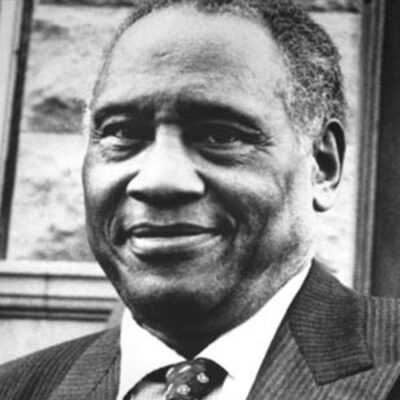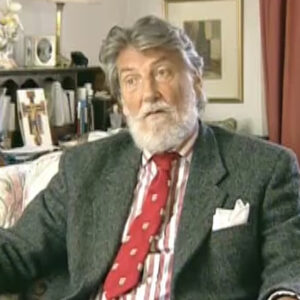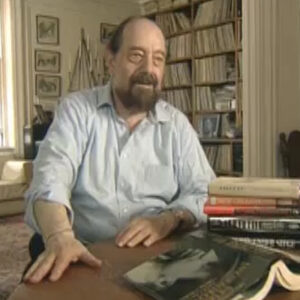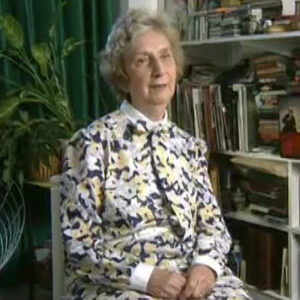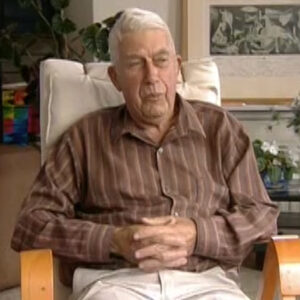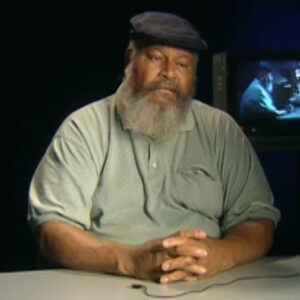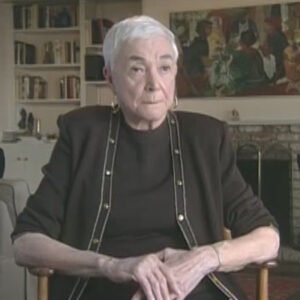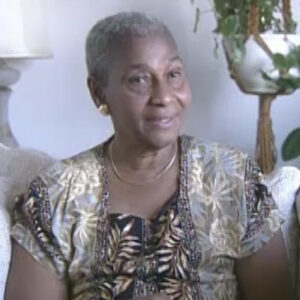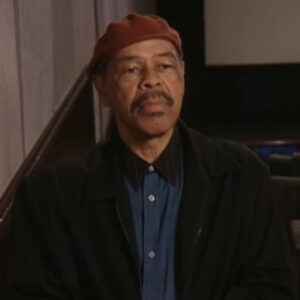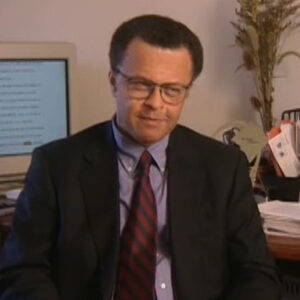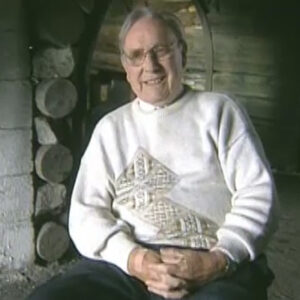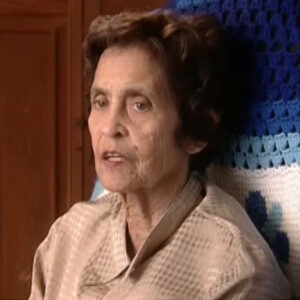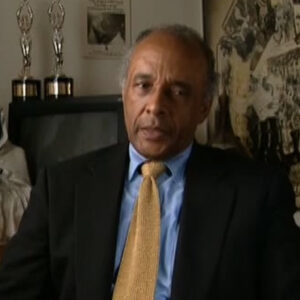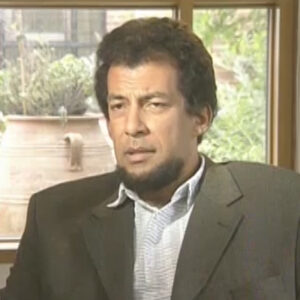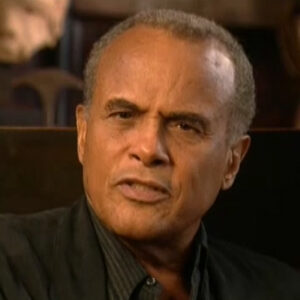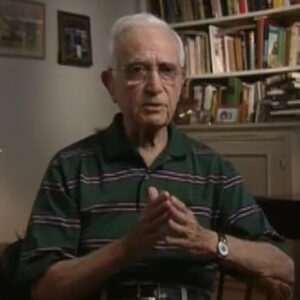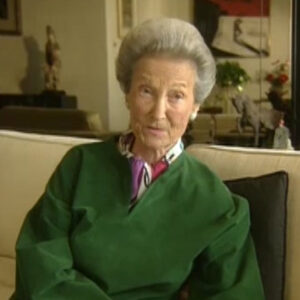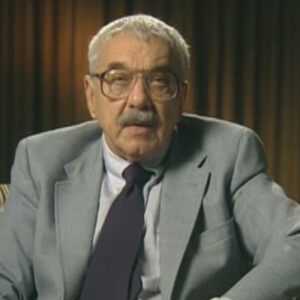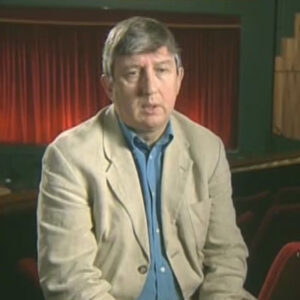Speaker I’ve been writing sports for pay for about 25 years at The New York Times, six years, and I was at the Baltimore Sun when I was a jazz critic at The Baltimore Sun for that sort of four year period. Then I was at Ebony before that and I was like this kind of sports editor. And before that I was at the Afro where in fact my mentor was Sam Lacy. And oddly enough, I wrote some sports most I covered murder and that kind of stuff.
Speaker But my whole life basically has been tied up in sports from the time I was eight years old, you know, at the YMCA and run an organized sports. I played in high school, I played college. But I was also been writing that long to since I was about eight years old. And so I never you know, I was surprised. I never knew that you get paid money for writing about sports. And so, you know, I was in high school. I started to kind of write some things.
Speaker And that’s what attracts you to the subject, because I write it. What is it about it?
Speaker I think there are a lot of things and it’s kind of interesting you ask. I never read. I love the action. I sort of love the the fair play idea of it. I love the idea of it’s one way of getting back, you know what I’m saying? In other words, your daddy can’t help you, you know, when it’s time to run. And I always tell them I’m calling my metaphore. Even now, catching up with the press box said, you know, your daddy can’t help you now. You know, you run 100 meters. It ain’t about your daddy works of, you know, Standard Oil. And he could do this. No, if you can’t be if you can’t be grandparents in a hundred. And I love that about sports, about about the earth, sports, football, basketball, baseball, to an extent, they can’t groove pitchers. But, you know, those got ballet. I mean, the ballet. But, you know, things like ice skating, there’s always a little room that’s I think that’s why you don’t see a lot of black folks any sport. We have too much subjectivity in it. We tend to not do well because of our whole historical thing here. But when the cleaner cut it is, the more we will tend. So to dominate and the last things had to do with money now, so I mean, I’ve always been fascinated with sort of the fair play kind of meritocracy idea of who gets there first and then writing about it. It’s just business. They’re just sort of a poetry to it, particularly what I think that what people have comfortingly black people have done was where we’ve transformed this thing into a creative artform. We we have transformed physicality, just labor, what used to be just our whole labor thing here. You know, we are gradually transform that to a whole physical art form. You know, Ali, and with it, even Jack Johnson and and as a writer and really being plugged into that, you know, it’s just sort of you combine the best of art with politics. And I found it to be such a neat FoxxHole because I really can’t get at you because you’re basically talking about stuff that everybody, you know, all come here together, fun and games. But there are so many truths that are kind of passing through that particularly racial truths. And you could tell it that nobody could really deal with you because basically sport at as finest, you got to get it out. So that is very liberating. The language also is probably much more liberating than other parts of it. In this case, the paper, you know, and in other parts of the paper, you kind of covered sports. We’re dealing with metaphore every day and hyperbole and allegory and that kind of stuff, so so just as a writer has been, it’s been very somewhat liberating and a good way to get into the African experience in America.
Speaker Now, from that point, looking at Paul Robeson, that must be a pilot.
Speaker Beyond belief, I mean, let’s take early Paul Robeson in high school, Paul Robeson.
Speaker What do you see as his primary motivating force in his life?
Speaker Is that. I mean, his father, I mean, his whole you know, his father’s whole legacy, I mean, you know, his whole being, his father being a runaway slave, I mean that in of itself, you know, I mean, everybody’s slave, very few runaway slaves.
Speaker You know, you you very few were runaway slaves. Very few were dead slaves.
Speaker I mean, most of us chose to just kind of be what they call sensible and just kind of, you know, you know, be sensible and make the best of it. But I think that that from what you read about Rose and his father, his father played such a strong role in his courage and a strength, that delicate balance between dishing it out, but also being pleasant about it, you know, about not backing down, but also not losing religion. So I think that particularly athletically, I mean, I think his family, his father was every high school game, you know, and his father was, I guess the Somerville team where we saw him was like, good luck charm, you know? So, I mean, his his father was clearly the rock from what he said and then from what he didn’t say. So, I mean, I think you to start that’s where you start with his dad.
Speaker What sports the.
Speaker Yeah, I know I that I got what I’ll get back to. What what sports did the. Was in play in high school.
Speaker Yeah, well, I mean, he played like he was he was like a 11 or 12 sport guy. I mean, I can’t call I can’t think of what 12 sports they had in 1951. But he he was a great baseball player. He played basketball, which at the time basketball in 1915, 1914 was basically it was an offensive game. That it is the day is basically a defensive game where you just stop people. And you remember there was a big cat. I mean, Robinson was like he was big for today’s standings and he was quick by today’s standards. You know, he played tennis, a passable game of tennis. He played baseball. He was a catcher, I think, on the baseball team. He played basketball and obviously. Football was where he just, like, killed people, you know? So, you know, he was just a very, very, very well rounded by any standard. I mean, I think that’s that’s the thing to keep in mind when you’re talking about Robson, that by any standard, you know, words not like, you know, you look at these old films and they talk about how great a guy and he was such a big guy, he turned out to be like five, eight or something. You know, this guy was like big and fast and strong by any any measure.
Speaker So it’s like. OK, the first part of the.
Speaker But let’s just pause or something like that. Big trucks rumble. OK, I’m just trying to get the sound I know. What do those.
Speaker OK, well, again, I just I just want to ask you, let’s make that point about and place him in the context of today, what kind of an athlete would he be today in terms of size and speed?
Speaker Yeah, well, I mean, that’s that’s the thing to keep in mind about Rabson, is that by any standard, by today’s standard, by any any history or any athletic standard, Robeson was a good guy. I mean, he was a real thing. He was about, I think, six to maybe two. Twenty five to thirty five. You know, he was nimble enough to play tennis. He was very quick. He had big has we had good hands. He was very strong and he was smart, you know, I mean, this guy had the whole package. So by any standard, you know, and that’s the thing that you really have to keep in mind in which our young people about him is that this guy wasn’t just a period player where he would be great. Nineteen forty, but couldn’t survive. He wasn’t a dinosaur, you know, he was big, he was strong and he had a temper. He had a temper, but it was under control. I mean he was a competitor and this guy was a competitor, you know. And then, you know, you look at when he played, you know, he wasn’t like Jackie would be later where, you know, Jackie was a fiery guy was like, turn the other cheek and that this guy was into revenge. I mean, you know, he he would get back.
Speaker You know, there was a story about his football experience.
Speaker And you can you can you just sort of mentioned whatever a couple.
Speaker I mean, it was I mean, it’s a story about Charles when he was a freshman at Rutgers. And, you know, he can’t remember he went to work because he was the only black person on campus at Rutgers, number one, you know, and he went out for the team and academic scholarship there. And so, of course, the first day of practice, they will teach him a lesson, which they did. I mean, first day of practice. They blocked him and while he was down, I mean, they they, like, broke his shoulder, they stepped on him, you know, I mean, they they did him in. They punish him. He was in bed. He was I mean, it was awful, you know, and he was thinking of quitting. And I mean, you know what you would normally think of doing yourself the most difficult task. But the two things that are interesting, the punchline line, this is interesting, but the intermittent thing is interesting, too. And his father told him, you know, and this is I think that’s part of the whole river that we’re all a part of. His father told him that, you know, you can’t quit because if you quit, there are hundreds of Negro boys, you know, who’ll be looking up to you who who will not get the opportunity to play if you don’t go back out there and play. So. So his father put this whole race. Bernard, you know, I’m sorry that you’re busted up, but it’s just not about you. It’s about the race. You got to go back out and, you know, and as far as brother came, kind of gave. His his brother, his brother came and gave some encouragement, but his father wanted to go back. So he went back out after it kind of got himself together. And the next the next, you know, practice, same thing. You know, you know, your back came back. He stepped on his and his hand. I think they tore off, like, all his fingernails, you know. And the next play, you know, apparently enough is enough. They came right. They ran a sweet and he knocked down both guards and the fullback came with a senior ropes and picked his cat up and like.
Speaker I mean, this is in a way, he held him like over his head and was about to slam his game, is about to kill this guy, which he says, I was going to kill him and the coach will I will kill him, too, and kind of blew the whistle. OK, well, you made the team, you might say, you know, OK, you know, and you can see the old fellow guy, you know, this guy over his head, you know, and that’s the kind of guy he was, you know, and and it would kind of carry on longer.
Speaker But this is a guy who was a gentle giant. But once you got him angry, there was like no turning back. In other words, you know, like this engine that was running. I mean, he was a remarkable guy.
Speaker What opportunities were there for athletes in those days and the college and if there were any at all?
Speaker I mean, in general, then. Yeah, well, for for for white athletes, I mean, it was for black athletes. It was pretty narrow, I mean, really, the only there was some I’m sorry.
Speaker Where’s that?
Speaker I remember we were talking about the context of where athletes were at that time, you know, you said like the jockey thing and then, yeah, that’s how they try to keep their promises or straighten out your tie.
Speaker All right.
Speaker OK, Robbie Robertson came along at a time just at the time when blacks had pretty much been phased out of sport, it was the end of a big cleanup era. The black baseball players who have been playing integrated baseball in professional baseball had been phased out. You know, Moses, Fleetwood Walker in 1880, 1890, they’d basically been phased out black jockeys who dominated horse racing for the 19th century. I mean, they dominated it had basically been phased out beginning in 1895. They had been legislated out of horse racing. Well, yet in cycling, the black cycling champion over.
Speaker The black cycling champ, Major Taylor, had basically been forced to go overseas to race and football was around, but but basically football was in its infancy. So football, when rovers are playing football, was still the one area where blacks kind of play. Most of them were coming from black schools.
Speaker You had a couple of guys who preceded Robeson, the biggest one being Fritz Pollard, who was playing at Brown. But pretty much Robinson was kind of he was sort of the people, you know, they were the guys. There wasn’t a lot of stuff going. Remember, he was the first guy at Rutgers and Rutgers was. One of your first rescues is one of the first major program, so there wasn’t a lot of stuff, there wasn’t a lot of stuff available for black athletes who want to participate in integrated sports. The big things were football in its infancy. And then. Because of Jack Johnson boxing, but, you know, not one person, you not talking about a lot of people, you talk about the NBA and, you know, in the latter part of the century.
Speaker So wouldn’t a lot of stuff happening once Paul got on the plane were two instances of a team like watching intently, refusing to play.
Speaker I mean, there were a couple I mean, you know, I mean, there was a you had Southern schools who just refused to play. I mean, Washington was a big thing that they said they weren’t going to play with a black player and they didn’t. And he sat out. But, you know, you didn’t have. A lot of a lot of that what you did have was just a lot of nastiness directed at ropes. And remember, remember, we’re talking about 19, 16 in the United States when black people get lynched. You know, there were still the residual effect of reconstruction. You know, and the backlash and and there was a whole thing I remember. I mean, they didn’t think black people were going to survive. We’re supposed to be this inferior race because genetically we didn’t have what it took to survive that. That was the thinking. Robeson was the beginning, along with Jack Johnson, the beginning of them rethinking their position that that not only were black people will survive, but they were prosperous people.
Speaker And understand that to talk about that a little, I mean, you mentioned FDR.
Speaker Yeah, yeah, yeah, yeah. There was a theory going into that at the end of the 19th century that that basically.
Speaker Pause. OK, well, good.
Speaker Yeah, yeah, I mean, at the end of the day, at the end of the 19th century, there was a whole theory among a lot of white people, white, you know, genetic, you know, scientists that black people weren’t going to survive. I mean, we were not supposed to survive too much further into the 20th century because we were supposedly genetically inferior.
Speaker And so I think what was phenomenal about what was going to happen athletically, it was it was a whole metaphor for not only where we’re going to survive, but we’re getting stronger. Teddy Roosevelt, I don’t have the quote, but he was one of the first people to realize that not only did black people not back down and not wilt in the presence of white people and in the context of slavery, but they actually multiplied and became stronger.
Speaker So when you had a Paul Robeson, when you had a Jack Johnson, that was that’s why there was such an insane fear, because people realized that this black physical presence wasn’t shrinking, but it was getting stronger, was expanding in in those places where there was a level playing field, they were actually superior, you know, as Robeson was, you know, throughout his career. So he was significant and a lot of different levels.
Speaker Good grief. There’s and in that context, then there’s this West Virginia game in 1917.
Speaker I don’t know if you know about that. The the coach is going in, Neal, right there. Are you familiar with that?
Speaker Just vaguely. I mean, I’m just familiar enough that that he gave him sort of like a backhanded respect by not giving him the business, as they call it, because clearly he was so superior that he must be white or must be had some kind of, you know, genetically bummie, if so bizarre. If you look at Paul Robeson, you know, I mean, it was no way that you could say that this guy was kind of white, you know, mulatto or something. But that just shows how nuts you know, how you know how nuts they were about race and that physical presence.
Speaker How how did the press cover votes and how did the white did the white press cover him? And how did the black press cover?
Speaker Well, he was a hero in the black press. I mean, athletic to the extent that the black press really got involved in sports in a formal way, which they didn’t really do until.
Speaker Uh oh, um, yeah, pressed white press and yeah, yeah, the black press was was was.
Speaker Respectful, but minimal. But I mean, the white press really gave him. The white press really gave him his due I mean, they referred to him as the dusky I mean, I believe everybody kind of did that in the white press, referring to black athletes. But I think that they were just blown away in their account of him as a sort of Herculean figure. And so they weren’t they weren’t unfair, I mean, by those standards. But I think they were just it was he was just phenomenal. I mean, remember, you have to remember that that they didn’t think that black people and black people were beyond invisible, you know, I mean, they didn’t think that they, you know, had this kind of courage to had this kind of ability. And Robeson was a smart guy on top of it. So the white press really treated him favorably. I mean, remember, Walter can’t I mean, to show Walter camp made him an all-American. You know, the first one was was Fritz Pollard, but he made him an all-American twice. He said he was the best football players he’d ever seen, I mean, ever seen in 1916.
Speaker I keep going back to that because black people were getting no play back then for doing anything, you know, and they are saying this guy was like the best he’d ever see.
Speaker Do you think that was overcompensation?
Speaker No, because he was the best he’d ever seen. I mean, they had never seen any.
Speaker But remember this guy at a time when when he’s calling somebody and I big was like six feet, you know? And remember, it just kind of gets back into something I call loose ball mentality. And this is somewhat racist, but.
Speaker Was so we got the white face and you just finish that, but and the black one, but also was he a household name as an athlete or among black people? OK, OK, you’re at the white president.
Speaker Yeah. I mean, I think that, you know, the wife is clearly gave is kudos because he was as I was saying, you know, he was he was a guy with two very big, bigger and bigger than life and big in a way that they were not used to big people being he was moving. He was like quick cat and all that kind of stuff in the black press and the black community, I think even more than the black press got, like Robeson was a the quintessential sort of Renaissance person, you know, even when I was a kid. I mean, you know you know, that’s who you aspire to be very balanced as a student, as an athlete.
Speaker Uh.
Speaker As Tom said, as was what they called race man, I mean, the thing that that grows about roses for me and in resonance that he was everything that the contemporary black athlete is not in terms of his ideals, his values, what he stood for using his playing field as a as a stage using sport. He always used sports, but never used him, never used him. Even when he played professionally. He used sport to go to law school. He had it he had that part figured out. That’s why the more you learn about him, the more he is really the quintessential. Black athlete, not Michael Jordan. In fact, people like Jordan begin to pale in comparison when you start measuring it at a century white arc in terms of commitment, courage, purpose, you know, the whole thing, you know, comparison. Jordan doesn’t rate out, you know. And so there was a certain resonance of Arabs within the black community. That here was a person who really cared. About the community, and I think that was one of the athletically and from somebody who’s been around athletes now, that’s the thing that continues to resonate about the fact that the extent to which he was connected to the black community and stay connected to it and use whatever he did as somehow some way to enhance the community.
Speaker How do you what do you think that came from?
Speaker Well, again, it gets back to where it gets back to. It keeps going back to his father. It keeps going back to his father and his father, preaching to him about staying committed. I mean, I would imagine, you know, if you’re a runaway slave and all that entails the loyalty, the commitment, the courage and all that. And and and as his son, you buy it, you buy into that, then that never leaves you. And it never left robes. And and and I think it’s something that Jim Brown would say much later on that Robeson was the embodiment of. Is it just because you’re an athlete does not give an excuse not to be a man. And I think that what happened to black athletes after Reweigh, after Robeson is that there was a trade off. You know, with riches, your sort of manhood, your commitment to your people, receipted in direct proportion.
Speaker Quiet, please.
Speaker Um, it recede, I mean, you know, I think the thing the thing that comes up me by Roberson is that he never was disconnected. And I think what you find out, what you see in black athletes today is that it’s almost an unwritten trade off and that in that your riches, your riches will increase in direct proportion to your backing away from the community. You know, that’s the kind exchange change involves. Never did that. I mean, he he’d never, never, never did that. He always remained connected, always remain connected to his people. And sports, never sports never got in the way of that.
Speaker OK, um, what was that what was the um. There was a starring performance in the Naval Reserve team at Ebbets Field. Are you aware that I mean, was that significant in any way in terms of his career or was just another great it was just another great game.
Speaker I mean, Washington, these were just you go through there, just great games.
Speaker I mean, it wasn’t like, you know, that would get him like the Heisman or today would result in like a fifty million dollar contract. He was just beating people up, you know, legally, if you know and probably having fun. Given his mentality, I’m sure he was having a ball. Say, you mean I could do this, you know, free. They’d maybe it all American.
Speaker You know, you clearly he he enjoyed he enjoyed this. And there wasn’t there wasn’t a big there wasn’t a big payoff.
Speaker Then what about the um. I was wondered when he when he fought on he fought when he played against Jim Thorpe. And I wonder if there was any kind of uh in fact those was in the end that he also had to go against, uh, you know, I don’t know the Jim the Jim Thorpe thing, except that I mean I mean, they play and it was a legendary game.
Speaker Yeah.
Speaker I mean, it was you know, it was a legendary game, but I don’t know. And all the things I’ve read about him out of there was like a special thing, you know, because, you know, he was African-American. Thorpe was in I mean, I think it was just too too bad that’s, you know, meeting on a playing field and robes and went out, you know, because he was just oh, I was he was bad. He was better than me. Thought was really great, too. But, you know, and Robeson, you know, was always treated professional football was like a hobby. To him, he never got really wrapped up in it, you know, like Fritz Pollard or he it was just again, it was thought that he had that thing right where it’s supposed to be. It was paying. It was paying his way to go to law school, you know, and it was, you know, but it wasn’t the defining thing. You know, he just had to do it to make a living. It was simply a means to an end, which once again, is something so profound about his relationship to athletics. It never consumed him. It was always a means to an end. Of course, now we’ve gone 360 degrees back. And that is the frightening thing. You know, it’s not a means to an end. It’s.
Speaker I just wondered, was there any hope, you know, of any kind of special relationship either?
Speaker Friction or friendly with Fritz Pollard and.
Speaker I actually had a good relationship, I mean, yeah, I mean, because, look, they were the two only black all Americans, you know, 19, 15, 16. No, I mean, I think they had a good relationship. I think Fritz would have liked him to play more. You know, but, you know, again, ropes and had another agenda. Yeah, I mean, he was, you know, and then I think after he’s taken into acting, he kind of lose completely. But I think that his relation with Fritz, I think was very respectful and it was congenial.
Speaker Would you would you say, uh, there was an official banning of blacks in the NFL in nineteen thirty four, or was it symbolic?
Speaker Well, what they call it, I mean, there was there was a gentlemen’s agreement that the then emerging National Football League wouldn’t draft black players. You know, it was nothing. It’s not you can’t find it anywhere, you know. And George Howell has denied it. Fritz Pollard chased him to the ends of the Earth, saying that this was true, but it was a gentlemen’s agreement. I mean, the proof of the pudding is in the pudding. There weren’t any black folks, you know, playing there, you know, until like Kenny Washington and Woody Strode, right?
Speaker Yeah, I heard it was.
Speaker So, OK, so the 1934 movement.
Speaker Yeah, it was it was an unofficial ban on blacks in the NFL and I think it was interesting because once again, it was, you know, mostly economic, you know, because it was a new league and that these white guys, you know, it about jobs, same thing. It was happening, you know, analogous to what was happening. Labor one, you know, it was about jobs. And yet these black guys who were competitors and they basically agree. The owners agree it’s not the draft, not the draft black players and then NATO in nineteen forty eight that this didn’t have any effect on votes.
Speaker No, because by that time I mean he he had already played he’d play with the Milwaukee team, he played Akron and you know, by 1919 he was out of I mean he he didn’t hit professional career was very short. His his professional career was very short. You know, again, he came, he saw, he conquered, he went on to other things, but he always would refer back to his sports career. You you’d always do it whether he was campaigning to integrate baseball or whatever, he he was letting people know that he was not a Pharisee. I mean, he was an all-American.
Speaker And he did this and he conquered and he and he knew what were the what what kind of efforts were made in the 50s to write him out of. Football history, I mean, uh.
Speaker Well, I mean, the college wasn’t an effort. I mean, he did it, you know, I mean, you know, the College Football Hall of Fame, the College Football Foundation, I remember Rosie didn’t get into the Hall of Fame till 1995. And there was a concerted. Movement to simply just not acknowledge from Rutgers or Rutgers eventually found religion, you know what, because Orphange Jersey, Hall of Fame, everybody found religion sort of after the fact, but it was almost as if he didn’t exist. You know, and that was probably one of the greatest atrocities in college. Yeah, that was probably one of the greatest atrocities in college sports, the burial, so to speak, of Paul Robeson.
Speaker I mean, he should have been in the Hall of Fame the minute, you know, the minute he graduated for what he did to the sport, for what he did for the sport. But, you know, again, you know, it gets into sacrifice and and what was it was what was the motivation for that?
Speaker Was it white supremacy or was it. It was politics of the Cold War?
Speaker Yeah, it was politics. I mean, white supremacy never goes away. I mean, that’s always was like sort of default racism. But the fact that he took it to another level. You know, and when in the whole communist, I mean, you know, there are a lot of black folks, you know, who are afraid of what you know. So, yeah, I mean, I think the fact that that he has affiliation with the communist movement, the Communist Party may have made the college football establishment sort of whitewash him. Blackballing.
Speaker I have two more questions on.
Speaker This is louder than. Ask him, I mean, um.
Speaker To what extent was Wilson involved in the integration of latter baseball?
Speaker Yeah, yeah, well, I mean I mean, know irony of the whole thing is he he basically in 1943, spoke to the owners, spoke to the baseball owners, along with the, you know, black newspaper publishers. But he was clearly the star of that show, you know, as he often was in his career. You know, he basically said that he told them that. He told them if he could play Othello, play Shakespeare’s Othello, then they could certainly integrate Major League Baseball and, you know, even kiddish, all my Landis, who was like the ringleader of this whole thing, you know, said that he prefaced the whole thing by saying, well, there’s no policy, you know, to keep blacks and robbers and basically just told this was ridiculous. You know, but again, the interesting thing about Robert’s take on integration of baseball, he saw that as just part of the whole liberation movement. You know, not just we got to great baseball, but we’ve got to integrate. We got to break down barriers across the board. This just happens to be a major pillar. You know, he didn’t see sport. He just saw sport as one more thing to break down. You know, again, he never got trapped in that sports thing. He understood that baseball was very near and dear to the bosom of white America and that once you took that pillar down, it would really it would really reverberate through the entire structure of things. You know, Sammy, in two years, you know, he spoke them in forty three. Forty five, it was integrated. So did he play the defining role? He played a major role. He played a major role in breaking down that barrier. And I think to a lot of people, it was a very it was sort of he never got a lot of credit. For the role he played in integrating baseball.
Speaker OK, now you you’ve been writing sports for a while, you’ve seen Rose’s name come back to talk with. How what do you think about the restoration of his name, I mean, obviously it’s good it’s happening, right? But do you think that. His place is just in sports now. Do you think that has been really acknowledged and with the full implications of what it means?
Speaker No, not really. You know, I think for me, I mean, I have a sort of pride myself on knowing he I’ve really begun to really get into Paul Robeson maybe just in the last decade.
Speaker Yeah, what do you think, just in the last 10 years and really he has been the source of strength really in my career, just as a writer and a writer who talks a lot about social racial issues, just his courage, the sacrifice. And he’s really become sort of my anchor. And I think that as more and more young black athletes know about him, I think he’s going to become their anchor, too. Because what’s happening right now in sports and black folks, we’ve reached a point that there is no focus, there is no direction. There’s been a loss of mission, period.
Speaker You know, and I think what Robertson stands for is clarity, mission, sense of purpose, courage, sacrifice, you know, battling, fighting and ideals, you know, and that’s all the things I just mentioned are completely absent in contemporary sports, completely absent. And I think that. What I what I want to do is make sure that young brothers know about Paul Ropes because they can understand these cars, they don’t understand a lot, but they do understand struggle. I mean, I understand, you know, take it. You got it. I want it. And that’s what Robeson was. So, yeah, these young kids, I mean, a lot of people talk about the last generation. You know, a lot of a lot of people talk about these athletes as a lost generation, but I think this generation will really latch on to Robeson if their coaches would would let them understand who he was, because these guys are about kind of taking stuff that you got it I want. And that’s who I was. You know, that’s what his you know, you got it is wrong. I’m a take it or I’ma knock it down, you know, and I know that is really in his life has really inspired me.
Speaker And I think that he comes the restoration this anniversary comes at just the right time for for for black folks in sports, because, like I said, there is no you talking about a group of lost people, you know, with a lot of money and a lot of power, but have no sense of where it came from, how it got this way, the level of sacrifice. I mean, no idea. Not that they’re not that they’re bad people. They just don’t know. And when you see a guy like Robeson and I think if a guy like Robeson was alive today, if a guy like Rosa was playing today, you know, you got athletes here who you got a great army of people looking for a general and he’d be the general. He would be the general hands down. He would make he would make guys like Jordan you with you. You would tell them you either dribble or you shoot. He’d make them commit. And that’s what I love about Rabson, you know, is that he made people commit.
Speaker What’s your understanding of the whole Jackie Robinson? You know, during the Cold War that you had your understanding of it?
Speaker Well, I mean, I think that the show Robeson and his Robeson showed Robeson at his most noble and I think it showed Jackie as being an athlete. You know, I’m saying just being an athlete kind of out of his league, not knowing until after the fact that he was destroying. Oh.
Speaker You should mention that again, we should mention the incident, the. OK, then.
Speaker Yeah, I mean, I think that the whole thing with Jackie Robinson and Paul Robeson was so enlightening for me because, you know, Robeson was being who he is, you know, the way he handled the whole thing. And, you know, Jackie Robinson was they needed the House un-American Activities Committee. Needed they needed to put ropes in his place. I mean, beyond that, they needed to destroy him. And it’s funny, you know, and this is how sports enters into this, you know, people. You know, I think that the thing, you know, talk about me discovering robots in the last 10 years, but the thing that the interplay that really brought who he was and actually brought Jackie Robinson was it kind of crystallized this whole dynamic between integration and Robe’s Robinson Robinson, you know. You know, Rosa was a truth machine. You know, he made you kind of show what you were about and. I guess you know the House un-American in 1948, guess 1949, you know, and it just made a very powerful statement, you know, the Paris peace conference. You know, he basically said, you know, black people, you know, wouldn’t fight against the United States. I mean, you know, against Russia. And sure, he was taking license, but basically he knew what he was doing. He knew what he was doing, you know, and of course, they needed to find somebody to give lie to ropes and statement.
Speaker And it’s interesting, the role was played. We tend to underestimate that. But Jackie Robinson was the hottest, quote, unquote, Negro that they could buy. He had just you know, he was the embodiment of integration of everything they the white power structure wanted integration to be.
Speaker And they call Robinson up. And and he basically said, you recall he said that. What if he remember he what he said if what he said if he said what they say. He said it sounds sort of silly to me. And. Although it was a although he didn’t really kill he really did kill his career, I mean, that was the straw that broke the camel’s back because what they needed was a high profile black person and it was Robinson to basically ruin his credibility. And the interesting thing about the whole play, the two things A and never fired back. Jack, in fact, he said, you know, we’re more alike than we are different because we fight the same fights. And one of the most. Point to things I think the Jackie Rob was ever saying, and I began to respect Rob because as he got older, remember, he supported the boycott in 1968, you know, because the instant he said what he said, he realized he’d made a blunder. But he said.
Speaker You know, Robertson said later and he said in his autobiography, he said, you know. I didn’t realize I was I was naive. In 1948, I didn’t realize how destructive the white man could be. And he said, if I had to do it all over again, I never do it because I know now the ropes, I was just concerned about his people.
Speaker Well.
Speaker You know what Robinson said near the end of his life, he thought about what he said. I know that that must have haunted Robinson for probably the last, you know, 20 years of his life because Jackie at a natural level was about his people. But Robinson took it to a whole global level that I think Robinson realized rather realized after he said it, that they wanted to destroy him because he was about his people. And one of the things that Robson’s say in his autobiography, and I remember I just sent chills up my spine, he said, you know, back in 48, I was naive. About the destructiveness of the white man and that if I had to do it again, I wouldn’t do it again because I realized the ropes and just cared about his people. And I mean, it’s sad, but but the tragedy of it and it’s a lesson for these guys, is that the damage is already done. You see what I’m saying? They’re already here, already spoken.
Speaker The movie Fingers written, and they destroyed Robe’s.
Speaker Um, do you think that his athletic abilities.
Speaker Uh, affected his later life or influence in terms of the lessons he learned as an athlete.
Speaker Yeah, yeah, he’d always yeah. I mean, Robeson always refer to athletics and his ability as a friend to use them as a frame of reference. To talk about struggle, to talk about the need to push on, you need to overcome, you know, again, rossant. It wasn’t extracted the key lessons from sport. You know, he he extracted the key lessons from sport, overcoming courage, valor, those two, and apply them to his larger life. You know, again, as opposed to. You know, his his. The people who came after him, who really haven’t taken anything away from sport except for the most mundane lessons, you know, Robe’s is always at another level. And, you know, he he he knew what sports was about. He knew how to use it.
Speaker Is there anything you want to say? I’ve answered the questions. You just in retrospect that you might want to say to.
Speaker I think we covered it all. I mean, he’s powerful, he’s a he’s a piece of power for us. I just hope the more I have, the more and more young black athletes are exposed to him because he’s you know, he’s a great lesson of how to use your power. You know, and I mean, I think if they get that from them, I think that his life is clearly one in vain, but his life in a athletic sense would really emblazon this whole thing, that kind of light, the fuse.
Speaker Yeah, I think it was the. Um, let me just put it a different way. Uh. You said that by any standards, he was still he’d still be a good.
Speaker Yeah, but, yeah, by any I mean, as a sports writer, you know, you tend to see people over a period of time, you know. You know, Joe Lewis, Ali, what with most athletes, their skills from one player can’t really transcend, you know, I mean, you know, they’d be good in this period, but they weren’t big enough. As strong as Pat Robertson is somebody we’re talking about a period of almost 80 years, his his ability, his knowledge of the game of the game of football was so advanced, you know, and his skills were so advanced so he could play in any decade. He was bigger than the competition. He was faster than the competition. He was more skilled than the competition, how to fight off blocks, you know, how to ward off blocks and make the tackle, how to catch, how to run, where to run.
Speaker You know, I mean, he was a smart guy and he and he used that strategically. I mean, Walter Kemp not only called him the greatest player, but he called him a genius now to call a black man a genius in 1980, remember? I mean, that was unheard of. Black people weren’t being called geniuses and anything but this man’s ability to know the game know the X’s and O’s of the game and then to be physical enough. Ta ta ta ta ta, pull it off was phenomenal, I mean, and I think that that’s probably what people don’t understand about ROVs and you know, you know, we say he’s a great athlete, but you have to be very specific.
Speaker He was a great athlete. And in the nineteen hundreds, he was a great athlete. And by 20 standards. By 30 standards. By 40 standards. By 50 standards. 60S there he was a great athlete. As we now go into a new millennium.
Speaker That’s why when you ask me who would be the ten great athletes of the millennium, you know, Robson would be right there.

